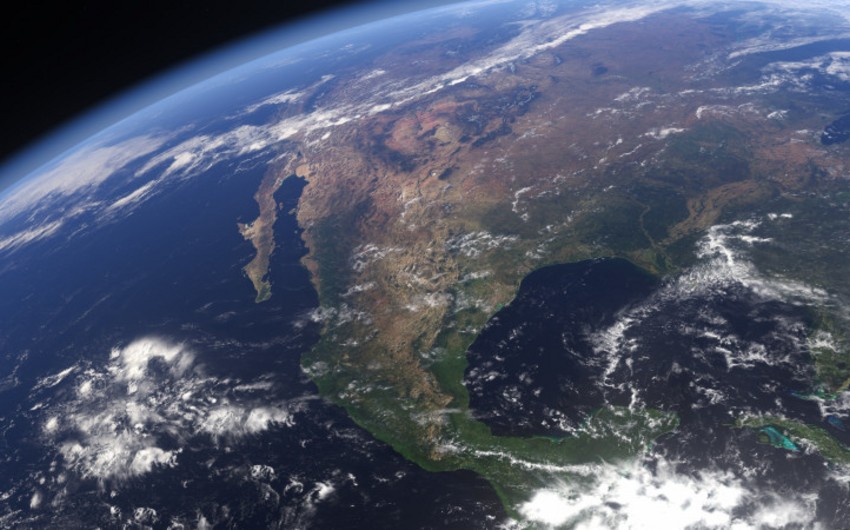The formation of a new “supercontinent” could wipe out humans and all other mammals still alive in 250 million years, researchers have predicted, Report informs referring to CNN.
Using the first-ever supercomputer climate models of the distant future, scientists from the University of Bristol in the United Kingdom predicted how climate extremes would intensify after the world’s continents merge to form one supercontinent, Pangea Ultima, in around 250 million years.
They found it would be extremely hot, dry and virtually uninhabitable for humans and mammals, who are not evolved to cope with prolonged exposure to excessive heat.
Researchers simulated temperature, wind, rain and humidity trends for the supercontinent and used models of tectonic plate movement, ocean chemistry and biology to calculate carbon dioxide levels.
They found that not only would the formation of Pangea Ultima lead to more regular volcanic eruptions, spewing carbon dioxide into the atmosphere and warming the planet, but the sun would also become brighter, emitting more energy and warming the Earth further, experts noted in the paper, published in the journal Nature Geoscience.
“Widespread temperatures of between 40 to 50 degrees Celsius (104 to 122 degrees Fahrenheit) and even greater daily extremes, compounded by high levels of humidity would ultimately seal our fate. Humans – along with many other species – would expire due to their inability to shed this heat through sweat, cooling their bodies,” Farnsworth added.
The increased heat, Farnsworth noted, would create an environment without food or water sources for mammals.
While there are large uncertainties when making predictions so far into the future, the scientists said that the picture appears “very bleak,” with only around 8% to 16% of land on the supercontinent habitable for mammals.


 https://images.report.az/photo/b54f51db-f75a-3edd-b91b-df112b814597.jpeg
https://images.report.az/photo/b54f51db-f75a-3edd-b91b-df112b814597.jpeg

